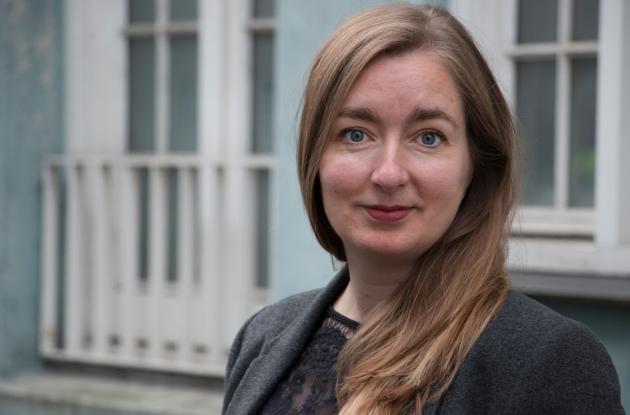Anna Lawaetz: The beginning of Danish drama
The theatre collection at Royal Danish Library was established to ensure access to Danish drama. The library's collection contains some of the oldest preserved performed unpublished plays.

Photo: Det Kgl. Bibliotek
Access to Danish drama is historic
In Denmark, historically, there is not a strong tradition of publishing drama, unlike in countries such as England and Germany. Therefore, in 1939, a circle of theatre/film and radio people took the initiative to create the theatre collection (formerly Dramatic Library) to ensure that Danish drama was preserved and that there was access to it. In addition, they wanted to ensure the purchase of foreign drama.
The initiators ensured that the industry itself financed the salary of an employee who had to carry out the task of collecting and serving users. It is thus a collection with a very strong connection to the performing arts environment and radio and TV theatre. For the first several years, the collection was housed in the University Library in Fiolstræde.
In 1989, the collection was handed over to Royal Danish Library. The collection now consists of approximately 30,000 plays in script form and approximately 20,000 foreign plays. The theatres continuously submit their staged plays to the collection. Until now, the collection has only been available by physical attendance at the reading room in the Black Diamond in Copenhagen.
The new agreement with Danske Dramatikere via Copydan Tekst & Node provides digital access to drama for everyone. This brings the collection into the 21st century.
The beginning of Danish drama
The professional Danish-language theatre begins with the Frenchman René Magnon de Montaigu (1661-1737). He established the Lille Grønnegade theatre in 1722, where Ludvig Holberg (1684-1754) converted Moliere's (1622-1673) "The Miser" to Danish for the opening performance. Subsequently, Holberg debuted at the theatre with his own play "The Political Pitcher".
Previously, French and German guest troupes had represented the professional theatre in Denmark. In the application for a license to operate a theatre from 1722, which was written in French for King Frederik IV, it was central that the new theatre should play in Danish (the license and application are in the National Archives). Holberg ensured that there was drama in Danish. In the period 1722-1727, he wrote 27 comedies, some of which are still in the theatres' repertoire.
The Lille Grønnegade theatre only existed for six years until 1728. From 1730-1746, Denmark had Christian VI as king, who did not care for theatre. But when Frederik V came to power, he gave permission to build the Comedy House. It was completed in 1748 and is today known as the Royal Danish Theatre.
The Royal Theatre's prompter archive
In the library's collection is the Royal Danish Theatre's prompter archive with some of the oldest unpublished dramatic works performed in Denmark, covering the period 1750-1927. A total of 971 prompter books.
A prompter book is used by prompters to help actors on stage continue if they have stalled in the performance. The prompter's book contains the entire play text with all lines, text corrections and sometimes the play's arrangement. The actors were simply given their own lines in role booklets. This was due to the fact that some are written by hand. It was therefore time-consuming and expensive if actors had to have the full script.
In connection with a special grant, manuscripts from the prompter archive up to 1800 have been digitised. The titles give an interesting insight into the international orientation they had - especially against France. Half of the preserved titles up to 1800 are thus translated French pieces, but Germany also played a central role.
If you look in Arthur Aumont and Edgar Collins "The Danish National Theatre 1748-1889" (1896), which is a repertoire overview from the Royal Danish Theatre, more was played than what is preserved in the prompter archive. Holberg's comedies in particular played a central role in the establishment of Den Danske Skueplads.
About Anna Lawaetz
Anna Lawaetz is a research librarian, PhD and responsible for the Royal Library's theatre collection. She has led the negotiations in collaboration with the library's lawyers on the agreement license for performed unpublished drama with Danske Dramatikere and Copydan Tekst & Node. Anna Lawaetz is a trained dramaturg.
Anna Lawaetz recommends
- Holberg's plays are made digitally available by the Danish Language and Literature Association, University of Bergen and Royal Danish Library
- The oldest work in the prompter archive:L'Irrésolu. A comedy in five acts by Philippe Néricault Destouche
- The digitised works from the prompter archive (digitised up to 1800)